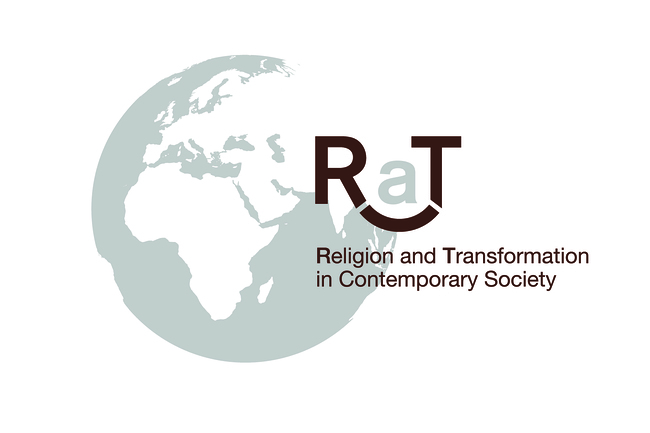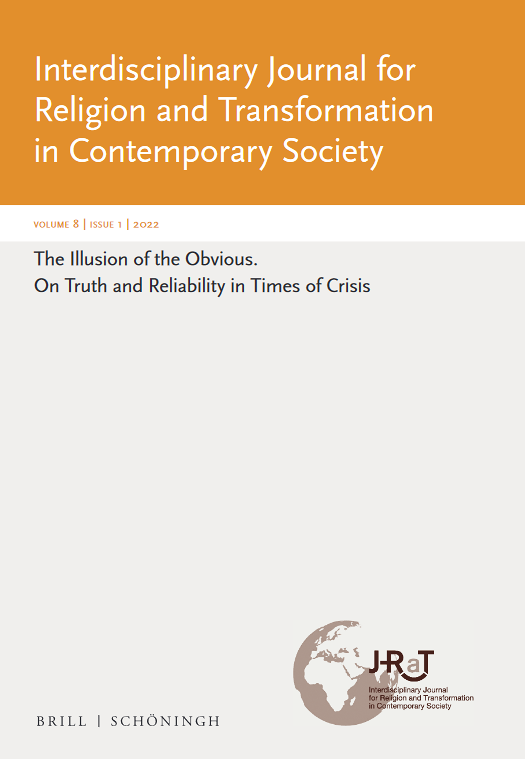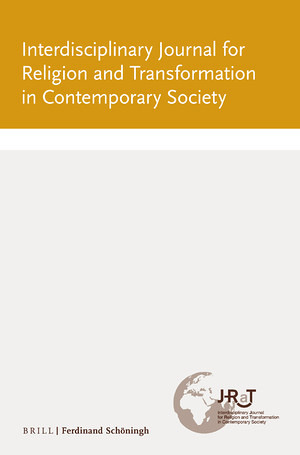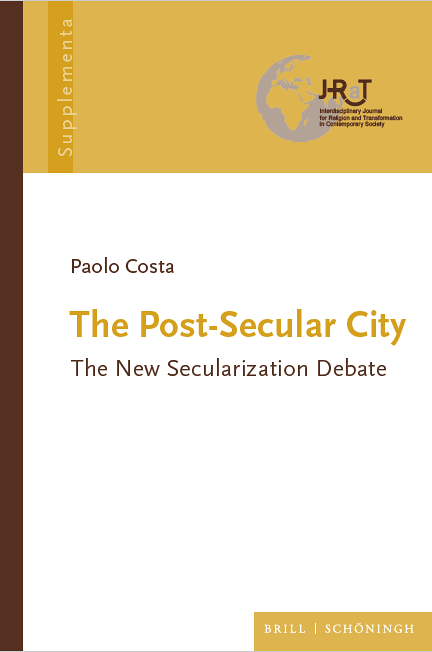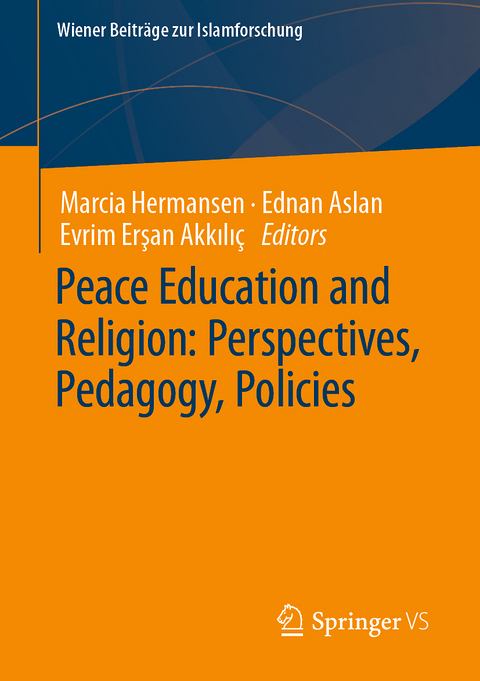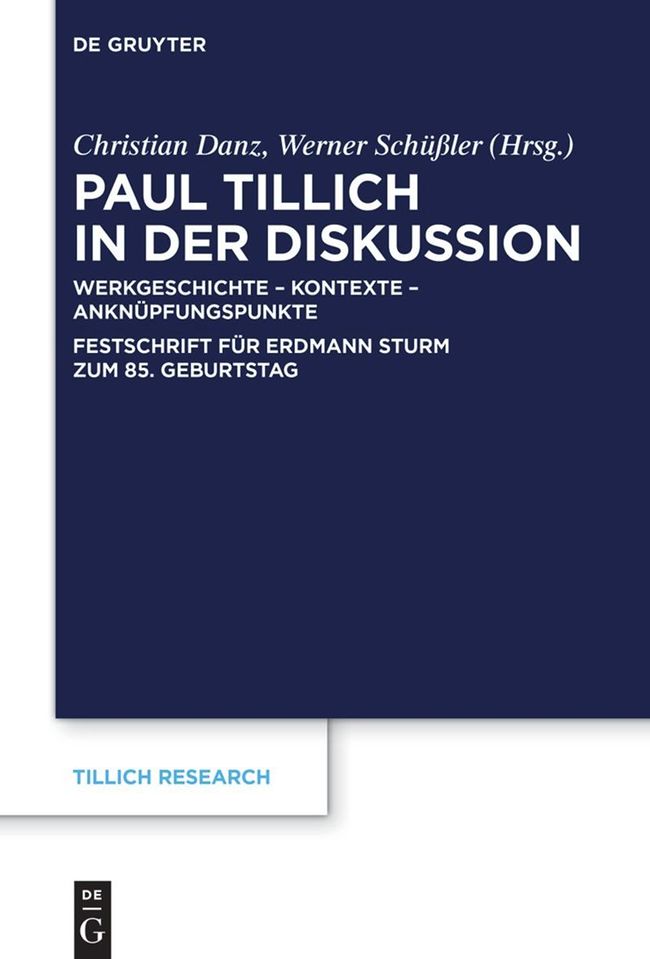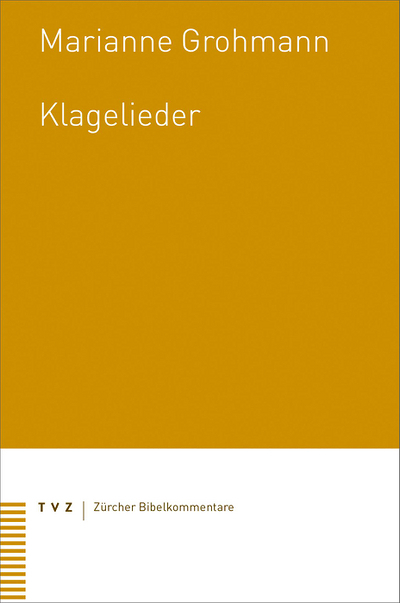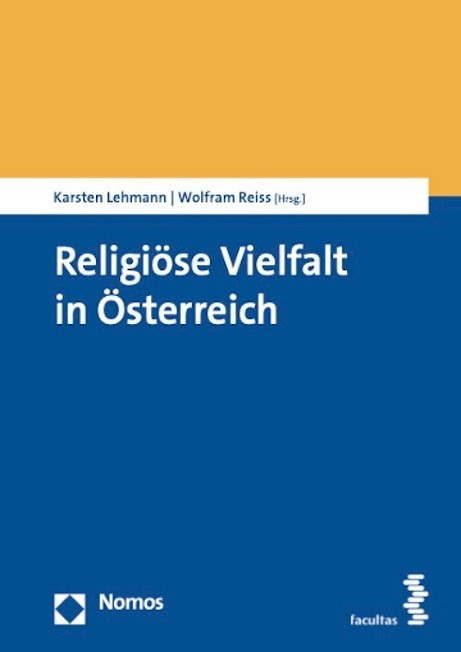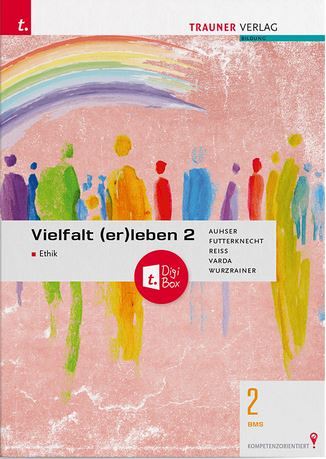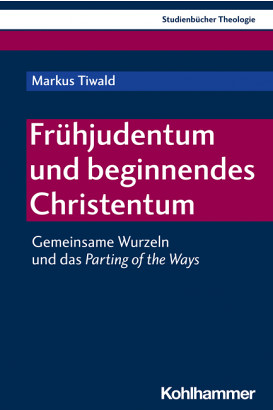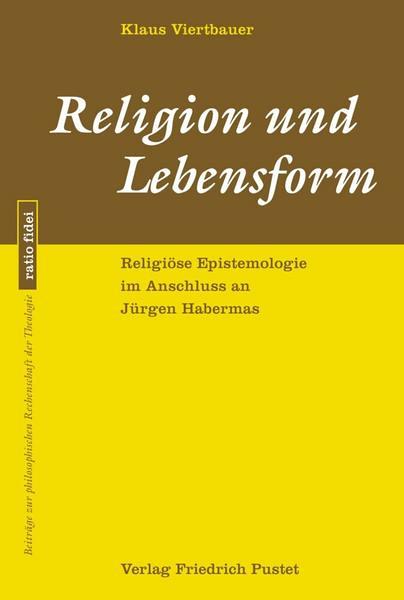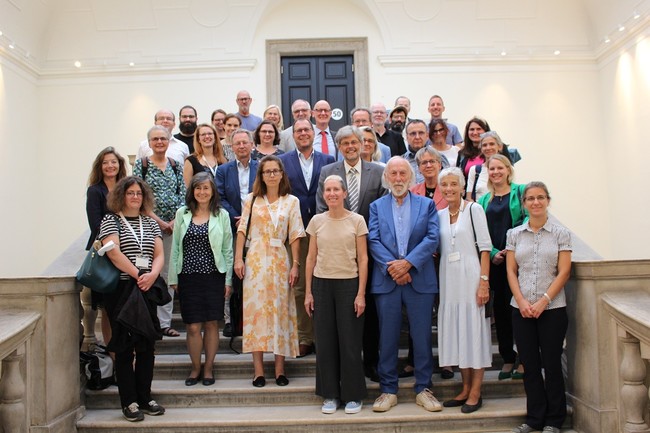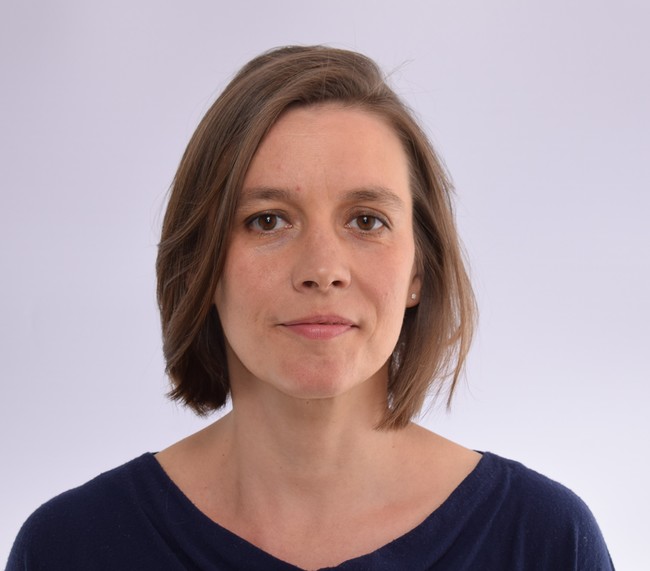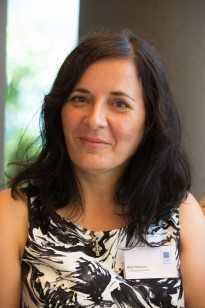|
|
Dear members and friends of RaT,
With fresh energy, we are starting into the autumn term, as preparations for events and new publications are in full swing. Autumn is a time for harvest and we are pleased to showcast the fruits of hard work by our members. Outdoors, it is fun to simultaneously watch the squirrels' business burrying their nuts and hedgehogs building their nests in order to be equipped for the coming winter months.
After the summer break, we would thus like to get everything rolling again and report in this newsletter on new publications, current research projects and upcoming events of RaT members.
Scrolling down, you will come to see that our latest JRAT issue has been published in the summer, alongside our new JRAT Supplementa volume. We would also like to take this opportunity to introduce to you several research projects by RaT members. Furthermore, we will report on the international research congress "'Parting of the Ways' between Judaism and Christianity" which took place in September. Last but not least, we are very excited that our RaT Blog has now moved to an official website of the University of Vienna. For this we would like to express our sincere thanks to Esther Heinrich-Ramharter for her help. You can find our latest blog entry on cultural appropriation by Hans-Gerald Hödl, which will also be described further down in this newsletter, on the new website https://rat-blog.univie.ac.at/.
We wish you a pleasant reading and a colourful autumn time!
Lisa Achathaler, Kurt Appel, Hannah Bleckenwegner, Jakob Deibl, Daniel Kuran, Astrid Mattes, Marian Schäffner.
Please consider forwarding our newsletter to those interested in the topics we work on!
|
|
Latest Issue:
JRAT 8 (1/2022) "The Illusion of the Obvious. On Truth and Reliability in Times of Crisis", edited by Cornelia Richter
The contributions of this issue, written by young and senior researchers, on the one hand, discuss aspects of truth and various modes of deception like insincerity, whitewashing, or bullshit, all of which set forth destructing forces and eroding democratic processes. On the other hand, the papers address phenomena of dissolving and eroding the reliability of collective efforts to maintain truth and sanctions on deception, especially when they are linked to dangerous reductionist movements and hermetic subgroups which systematically prevent the efforts of peacebuilding measures and make anti-democratic movements settle to an extent that endangers cohesion and collective identity within Europe.
Link to the publication (full access).
|
|
|
Latest Contribution
published online "in advance":
"Santería in Catemaco, Mexico" by Maria Papenfuss
The Mexican city of Catemaco is famous for its diversity of African-American religious traditions. Although Santería was originally shaped in Cuba, the local Mexican versions show not only a variety of references regarding their origins and influences, ranging from West Africa and Cuba to local indigenous traditions, but also (re)interpretations of historically and geographically diverse contents. Based on interview data gathered during field research in 2017, this article outlines the different hybrid (re)configurations of African-Mexican Santería in Catemaco by tracing the changes made by the practitioners in order to adapt existing traditions.
Link to the publication (full access).
This contribution will later be integrated in the JRAT issue "From Syncretism to Hybridity", edited by Bettina Schmidt and Gerald Hödl.
|
|
|
Volume 2 "The Post-Secular City",
edited by Paolo Costa
The Post-Secular City examines the purported shift from a “secular” to a “post-secular” dispensation from the perspective of the ongoing de-construction of the secularization “theorem” (as Hans Blumenberg called it). Accordingly, the new secularization debate is described as being polarized between the “de-constructors” and the “maintainers” (or re-constructors) of the standard thesis of secularization. This is the assumption underlying an ambitious effort to map out the field, which consists of a long introduction where “secularization” is analysed as a deeply problematic concept-of-process and of eight chapters in which several protagonists of the recent (i.e. post-1960s) debate are selected and used as placeholders of crucial junctions in the space of reasons enveloping such multidisciplinary conversation. They are (in order of appearance): H. Blumenberg, D. Martin, C. Taylor, H. Joas, T. Asad, M. Gauchet, J. Habermas, G. Vattimo. The book’s conclusion is open-ended, to the effect that it is unclear whether the concept is still helpful for understanding what is going on around us and what is in store for us in the near future.
Link to the publication (full access).
Paolo Costa was a research fellow at RaT from May to July 2017 during which he gave two talks, respectively, on the new secularisation debate and the concept of “religious unmusicality”.
|
|
|
PUBLICATIONS: Monographs & Anthologies
|
|
Aslan, Ednan/ Akkılıç, Evrim Erşan/ Hermansen, Marcia (eds.): Peace Education and Religion: Perspectives, Pedagogy, Policies. Wiener Beiträge zur Islamforschung. Wiesbaden: Springer VS 2022.
Contrary to the secularization thesis, many societies today are experiencing a revival of religion. Although religion performs different functions in diverse religious communities and in individual lives, in the media and public discourse it is increasingly associated with concepts such as extremism, violence, and fundamentalism. Thus religion is more and more seen as a threat to democratic and secular societies. In public debates religions have often been perceived as being less a solution to the problem of violence and more as being part of the problem. For this reason, religious leaders and organizations are urged to make their potential contributions to world peace transparent and tangible, because a conscious commitment to peace is essential in view of the current global situation. Peace education has always informally been part of a network of socio-political developments, pedagogical aims, historical narratives, and practical community activities. One challenge to peace education in today’s globalized, diverse, religiously pluralistic and mobile world is to be able to take both complex global and relevant local situations into account.
Link to the contribution.
|
|
|
Danz, Christian / Schüßler, Werner: Paul Tillich in der Diskussion. Werkgeschichte – Kontexte – Anknüpfungspunkte. Berlin: De Gruyter 2022.
Tillich research has changed fundamentally in the last 20 years. Whereas in the second half of the 20th century the focus of research was primarily on the late work as it is presented in Systematic Theology, since the turn of the millennium studies on the early work and the history of the work have increased. This is mainly due to the new sources made available to research through the editing work of Erdmann Sturm. The contributions in this volume explore the question of how the picture of the development of Tillich's theology and philosophy of religion in terms of the history of his work presents itself when these new sources are taken into account, and which aspects of his thought offer points of contact for contemporary theological debates. The volume thus comprises three parts: work-historical perspectives, problem-historical contexts and systematic points of contact. In this way, the volume dedicated to Erdmann Sturm on his 85th birthday offers a concise overview of the tendencies of current Tillich research.
Link to the publication.
|
|
|
Grohmann, Marianne: Klagelieder. Zürcher Bibelkommentare AT, Band NF 21. Zürich: TVZ 2022.
The Lamentations are crisis literature. In poetic language, they deal with a concrete historical event - the destruction of the city of Jerusalem and the Temple in 587 B.C. Marianne Grohmann's commentary shows the historical context of the tradition and spans the arc from the ancient Oriental lament literature to the many references within the Hebrew Bible to the history of reception, especially in Judaism. She interprets the five songs as literary, historical, anthropological and theological texts and sharpens the view for the ambiguity of Hebrew poetry.
Link to the publication.
|
|
|
Reiss, Wolfram / Lehmann, Karsten: Religiöse Vielfalt in Österreich. Baden-Baden: Nomos 2022.
This anthology provides a compact, up-to-date and easily understandable insight into Austria's religious diversity. In the introduction, the underlying concept of religion is described, an outline of the developments in the history of religion and legal history in dealing with religions is given, and the demographic developments of religion in Austria are shown. Then the entire religious landscape of Austria is examined from the perspective of religious studies.
This also includes small groups as well as agnostic and atheistic traditions. The focus is on internal diversity and the present. Finally, the interconnectedness of Austria's religions with different areas of society, such as education, art, media, politics, economy and law, is described by scholars of the respective disciplines.
Link to the publication.
|
|
|
Reiss, Wolfram / Wurzrainer, Robert / Auhser, Ferdinand / Futterknecht, Veronica / Varda, Karin Andrea: Vieltfalt (er)leben 2. Linz: Trauner Verlag 2022.
The second volume of the new textbook series "Vielfalt (er)leben" (Living Diversity) for the subject of ethics was also approved and will be used in ethics lessons at AHS, BHS and BMS from the school year 2022/23. The work attempts - as was already implemented in the first volume - to present the knowledge about religions required by the curriculum in ethics lessons from a religious studies perspective. According to the curriculum, the focus in this volume is on the Abrahamic religions - Judaism, Christianity and Islam - and deals with these religious traditions from both a historical and a systematic-comparative perspective.
This textbook was again written by a team of authors led by Prof. Wolfram Reiss and Mag. Robert Wurzrainer from the Institute for Systematic Theology and Religious Studies at the Faculty of Protestant Theology.
Link to the publication.
The basic approach of the textbook was explained on our RaT blog by Wolfram Reiss: click here to read.
|
|
|
Tiwald, Markus: Frühjudentum und beginnendes Christentum. Gemeinsame Wurzeln und das Parting of the Ways. Stuttgart: Kohlhammer 2022.
Jesus and his first followers were Jews - they never intended a faith community apart from Judaism. The "Parting of the Ways", the separation of Jews and Christians, was a long and by no means monolinear process that only found its conclusion through the Christological fixations of the fourth century. Early Judaism (300 B.C. to 200 A.D.) is explained in its political, sociological, economic and religious diversity and the incipient Christianity is fitted into it. The synopsis of texts, archaeological finds, sociological backgrounds and theological argumentation patterns clarifies how differently identity markers were lived in early Judaism and how the later Christian positions developed from this.
This new edition of "Early Judaism and the Beginnings of Christianity" has been greatly expanded and thoroughly revised for inclusion in the Studienbücher Theologie. Tiwald emphasises that Christianity can only be understood from early Judaism, explains why the paths nevertheless diverged, and makes clear that Christians are permanently referred to their Jewish roots.
Link to the publication.
|
|
|
Viertbauer, Klaus: Religion und Lebensform. Religiöse Epistemologie im Anschluss an Jürgen Habermas. Regensburg: Verlag Friedrich Pustet 2022.
The volume takes up two characteristics that are contrary to each other for European societies of late modernity: On the one hand, as soon as a person elevates himself to the object of reflection, he sees himself referred to an alterity (traditionally interpreted in religious terms as "God"). On the other hand, the status of religious claims to validity in the public sphere (for example, in parliaments, courts or schools) is increasingly restricted and becomes more and more a private matter.
The author attempts to resolve this ambivalence by drawing on the work of Jürgen Habermas. Specifically, Habermas' distinctions between ethics and morality or faith and knowledge are to be linked to a religious epistemology with the aim of clarifying the significance and scope of religious convictions.
Link to the publication.
|
|
|
RESEARCH
AWARDS
Elisabeth Holzleithner:
Justitia Award in the Academia Category
at the Women in Law Conference
The Women in Law Initiative connects female* legal professionals (and their male* allies) from all around the globe and offers them an exceptional meeting platform right in the heart of Europe.
Cem Kara: Research Award 2022
of the Annemarie Schimmel Foundation for Islamic Studies
In his impressive work "Boundary-crossing Dervishes. Cultural Relations of the Bektashi Order 1826-1925", Cem Kara offers a differentiated new history of the Sufi Order of the Bektashiya and its manifold geographical and cultural links. It thus makes an important contribution to the history of interconnections. Based on archival material from Turkey, Albania and the USA, for example, he traces processes of Islamisation, demarcation from non-Muslim religions as well as the Alevi Bektashiya within the framework of Turkish nationalism, and discusses how the Bektashi became a projection surface in Western Oriental studies, among missionaries, but also among new religious movements. In doing so, he clearly identifies the limits of his source material and shows the differences between history and historical narratives, discusses imaginations, transfer and adaptation of thought patterns and introduces contact spaces and their effects on the actors.
PROJECTS
Wolfram Reiss / Robert Wurzrainer:
Interreligious Dialogue in Austria
On 15 October 2022, the German and English language website "Interreligious Dialogue in Austria" https://www.interreligioeserdialog.at and www.interreligiousdialogue.at respectively will go online.
The website was designed and created by Univ.-Prof. Dr. Wolfram Reiss and Mag. Robert Wurzrainer in cooperation with students from different disciplines over the past two years.
The main aim of the website is to provide an overview of the approximately 50 different initiatives for inter-religious dialogue in Austria, as a condensed general overview has been lacking up to now. In addition to initiatives of institutions at international, national, provincial and municipal level, cooperations that promote, mediate and analyse interreligious dialogue are presented. Forms of practical interreligious cooperation in private, public and state organisations are also presented, as are interreligious dialogue initiatives by NGOs and various religious communities.
The website is not only intended to provide information about interreligious initiatives in Austria at various levels, but also to offer the initiatives themselves an opportunity to get to know similar projects, to get in touch with them, to network or to start their own projects.
The website will be updated at irregular intervals. The administrators are happy to receive information about other initiatives that would like to be included in this compilation.
Ednan Aslan:
"Effects of Islamic religious education in Austria"
The research project aims to evaluate Islamic religious education in Austria on the basis of results obtained through quantitative research. It compares the knowledge about and attitudes towards Islam (and other religions) of 9th grade students attending Islamic religious education with the knowledge and attitudes of students who have opted out of Islamic religious education. The project is designed as a cross-sectional study comprising approximately 1,000 subjects per group.
The aim is to elicit the effects of Islamic religious education in Austria on the basis of the knowledge and attitudes surveyed by means of questionnaires, which will serve as a basis for its further development.
The same project is also carried out in Central Java, Indonesia. For more information click here.
Milja Radovic: FWF-Project (Lise-Meitner-Programme)
"Reframing Space: Film as History" (REFACE)
Since the first film screening on the 6th of June 1896 when a bustling audience watched the first moving images presented by representatives of the Lumière Brothers, the cinema on the Balkan peninsula blossomed. The first filmmakers emerged from the grassroots and as they turned their camera on the world, re-discovering it through the camera-eye, they captured an experience of the time and place in which they lived, including the concepts of faith and the lives of religious communities, in authentic and novel ways.
REFACE approaches film as a primary source in the study of the cinematic representations of religion in the early documentary film from 1896 to 1939. REFACE systematically investigates the importance, place, and role of religion in the everyday life of religious communities as depicted by the early film pioneers through the camera-eye. It looks at how the film pioneers depicted religion, the life and relationship of the diverse religious communities, and the ways in which faith and the communities are understood and transcended within the filmic space. The early documentary film provides us with rare historical material which remains solely preserved on the reel: the people, their faith and customs, informing us about the specificity of the geo-cultural area and providing unique insight into its historical continuities and discontinuities.
There is an evident gap in the scientific research in religion and film which lacks the study of the early documentary film and religion on the Balkan peninsula at the turn of the twentieth century. In that sense, REFACE is a pioneering study that aims to fill the gap in state-of-the-art by examining religion and religious communities through the eyes of the early documentarists. By employing a new methodology and systematizing material heritage REFACE will present historically significant and otherwise inaccessible material to a wider audience through the first database and interactive exhibition on this topic.
|
|
DIE GESCHICHTE DES MODERNEN TANTRA ZWISCHEN BENGALISCHER LOKALTRADITION UND GLOBALEN VERFLECHTUNGEN.
Julian Strube: Semester lecture of the Austrian Society for the Scientific Study of Religions (ÖGRW)
10 October 2022, 4.30 pm
Venue: Meeting room of the Dean's Office of the Faculty of Catholic Theology Universitätsring 1 (Stiege 8, 2nd floor), 1010 Vienna
The programme can be found here.
BOOK PRESENTATION (JRAT SUPPLEMENTA VOLUME 2)
Paolo Costa: The Post-Secular City
11 October 2022, 12 - 1 pm
Venue: Online
Is it really possible to objectively map a debate on a topic as controversial as the fate of religion in modernity? How many contentious theoretical choices are needed to achieve this? And, with the benefit of hindsight, did we really need it?
The author will discuss these issues with Matteo Bortolini, professor of General Sociology at the University of Padua.
Register here.
JACO GERICKE: HEBREW BIBLE / OLD TESTAMENT SCHOLARSHIP AND PHILOSOPHY OF RELIGION.
An update on newly emerging interdisciplinary research trends.
14 October 2022, 4 - 5.30 pm
Venue: Online, for the Zoom link, click here.
Part of the RaT cluster "Transformation of the Philosophy of Religion".
The programme can be found here.
R20 INDONESIA 2022: REVEALING & NURTURING RELIGION AS A SOURCE OF GLOBAL SOLUTIONS
With a speech by RaT member Rüdiger Lohlker
2-3 November 2022
Venue: Grand Hyatt, Bali
The G20 Religion Forum leverages the “Group of 20” (G20) Summit, an annual gathering of the world’s most economically powerful nations, to help ensure that religion in the 21st century functions as a genuine and dynamic source of solutions, rather than problems.
The programme can be found here.
VIENNA UNIVERSITY PRESS RECEPTION AT THE AMERICAN ACADEMY OF RELIGION (AAR)
20 November 2022, 7-8 pm
Venue: Sheraton Denver Downtown Hotel, 1550 Court Place, Denver, CO
We would like to invite you to the Vienna University Press reception at the AAR on 20 November 2022 in Denver! In addition to Vienna University Press, which is an imprint of the renowned publishing house BRILL, we will also present our interdisciplinary journal Religion and Transformation (JRAT), the supplementary series of JRAT and our book series. In JRAT, we examine the reciprocal influences between religion and society from a variety of perspectives and disciplines, welcome full length articles, and would like to invite you to join us on 20 November 2022 at the Sheraton Denver Downtown Hotel. Food and beverages will be provided and we look forward to seeing you there!
Link to the website.
PAST EVENTS
International Congress on the "Parting of the Ways" between Judaism and Christianity
5-8 September 2022
In modern biblical scholarship, it is undisputed that Jesus himself did not want to found his own religion apart from Judaism. However, when the paths between Judaism and Christianity diverged and how strongly the roots of the beginning Christianity lie in Judaism is currently one of the most eventful areas of research in New Testament scholarship. The catchphrase "Parting of the Ways" has become established for this topic. Today, most Jewish scholars and biblical scholars argue that the Parting of the Ways was a process that did not take place in all communities at the same time and in the same way, and was not finally completed even in the fourth century. For New Testament biblical scholarship, these new insights have resulted in a "Copernican" turn in the interpretation of biblical texts. Especially the four canonical Gospels and the theology of Paul will have to be evaluated in future as an integral part of an inner-Jewish discourse.
An international and interdisciplinary congress on this topic took place at the University of Vienna from 5-8 September 2022 (hosted by M. Tiwald/Catholic Faculty of Theology and M. Öhler/Faculty of Protestant Theology, sponsored by RaT). The conference brought together 18 international experts and a further 30 participants. The proceedings will be published in the peer-reviewed RaT Series by mid-2023.
|
|
THIRD MISSION ACTIVITIES
RaT members contribute to public discourse by writing in newspapers, giving statements in television and podcasts, and by publishing on our blog. This is our most recent blog entry:
RAT BLOG
"'Cultural appropriation' means taking an element from one cultural context and inserting it into another in a way that does violence to the original cultural field. We thus find ourselves in the middle of the discussion about the so-called 'woke culture', a movement that aims to sensitise us to the racist structures in our common world that we encounter everywhere and are mostly unaware of."
How can the discourse on cultural appropriation be understood? In this contribution, Hans-Gerald Hödl sheds light on the cultural-historical background of dreadlocks, which repeatedly cause discussions in the media.
PRESS FEATURES
OE1
Elisabeth Holzleithner
...in "A question of morality. From children's books to the church, from corruption to advertising campaigns. What we mean when we say 'morality'".
ORF
Markus Tiwald & Markus Öhler
Under the title "Tagung über Verhältnis von Juden und Christen", the ORF announced the international congress "Parting of the ways – The Variegated Ways of Separation between Jews and Christians and its Consequences for Modern Jewish-Christian Dialogue" which took place from 5-8 September 2022.
|
|
WELCOME TO RAT, KATHARINA IVANYI!
Katharina Ivanyi will start her FWF-funded Elise Richter project on the history of Islamic jurisprudence in the post-classical period (12th-15th c.) in November. Her project examines a corpus of hitherto unstudied Hanafi legal texts from Western, Central and South Asia – texts that would exert considerable influence on the development of Hanafi thought and legal practice up until the modern period (in contemporary Afghanistan, Pakistan and India, to Central Asia, the Middle East, Europe and North America). Trained in Arabic, Islamic Studies and Middle Eastern Studies at Oxford (B.A. 2003, M.Phil. 2005) and Princeton University (Ph.D. 2012), Katharina has taught at Princeton, St. Michael’s College and Columbia University. After a number of years in the Austrian civil service, she recently returned to scholarly work with a “back-to-research” grant (Marie-Jahoda-fellowship) of the University of Vienna. She is currently Elise-Richter fellow and lecturer at the Department of Near Eastern Studies (Institut für Orientalistik) at the University of Vienna.
We wish Katharina all the best for her research project!
|
|
|
LISE MEITNER FELLWOSHIP – funded by the FWF and hosted by RaT
|
|
WELCOME TO RAT, MILJA RADOVIC!
Dr Milja Radovic is an international interdisciplinary scholar in religion, media and culture. Dr Radovic conducts specialised research in theology and film and her scientific work traverses theology of ascesis, visual arts, citizenship, nationalism, conflict and peacebuilding. She is the author of numerous scientific articles and authored monographs (Routledge, Ashgate, De Gruyter, JRFM, Edinburgh University Press). She holds lectures and keynotes internationally (Bologna, London, Edinburgh, St Andrews, Rome, Oxford, Cambridge, São Paulo, Nairobi, Boulder, Durham, Kent) and is the recipient of prestigious grants and awards for ground-breaking research in her field. Dr Radovic is actively engaged with the public sector, being an active member of Interfilm and serving as both president and member of the Ecumenical Jury at leading international film festivals, including Berlinale, Locarno, Karlovy Vary, Cottbus, and Oberhausen.
Dr Radovic works at the Research Centre Religion and Transformation in Contemporary Society in Vienna. She is leading the FWF-funded Project "Reframing Space: Film as History" ("Transformationen des Raums: Film als Geschichte").
We wish Milja all the best for her research project!
|
|
|
|
|
|
|
|

